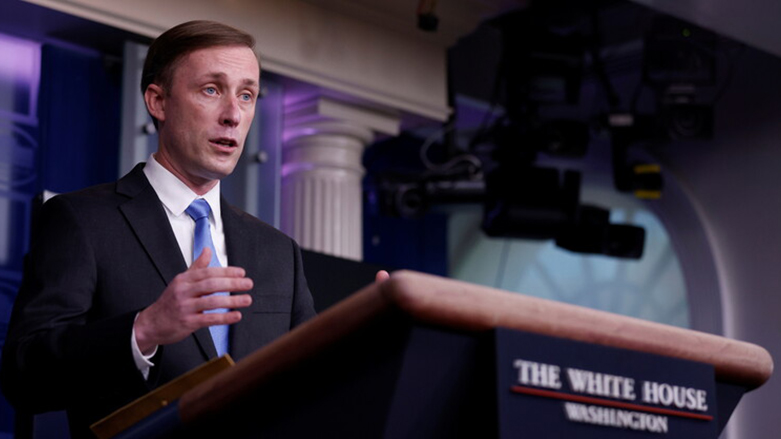US: We’re talking with Iran through third parties
“Diplomacy with Iran is ongoing—just not in a direct fashion at this moment.”

WASHINGTON DC (Kurdistan 24) – US National Security Advisor Jake Sullivan has explained that the US is now engaged in indirect talks with Iran.
Responding to a reporter’s question at a White House press conference on Friday, Sullivan affirmed, “Diplomacy with Iran is ongoing—just not in a direct fashion at this moment.”
“There are communications through the Europeans,” Sullivan stated.
The European Union (EU) last month issued an invitation to discuss the renewal of the 2015 Iranian nuclear deal. The US accepted the EU’s invitation, but Tehran rejected it, leading most observers—including the journalist who asked Sullivan about the status of those talks—to conclude there were none.
READ MORE: US reaffirms commitment to Iranian nuclear talks, despite Iran’s rejection
“Others” are also passing on messages between Washington and Tehran, Sullivan added. He may well have had Qatar and Oman in mind, although he provided no further details.
These indirect communications, Sullivan said, allow “us to explain to the Iranians what our position is, with respect to the compliance-for-compliance approach, and to hear what their position is.”
Until that point, the Biden administration had insisted that Iran must first come into compliance with the JCPOA (Joint Comprehensive Plan of Action), as the 2015 nuclear accord is formally known, and the US would respond, by coming into compliance itself and lifting sanctions.
On Feb. 1, Iranian Foreign Minister. Mohammed Javad Zarif, in an English-language interview with CNN, proposed that the EU’s foreign policy chief, Josep Borell, “choreograph the actions” of each side in order to avoid Iran having to take the first step.
The US responded cooly then to that proposal, however. State Department Spokesperson Ned Price affirmed that Iran had to resume “full compliance” with its obligations under the JCPOA, before the US would reciprocate and agree to lift sanctions.
READ MORE: US cool to Iran’s proposal for coordinated return to JCPOA; wants to address more than nuclear issue
But on Friday, as Sullivan explained the current status of Washington’s dealings with Iran, he said, “We’re waiting at this point to hear further from the Iranians how they would like to proceed.”
“This is not going to be easy,” Sullivan continued, “but we believe that we are in a diplomatic process now that we can move forward on, and ultimately secure our objective, which is to prevent Iran from getting a nuclear weapon and to do so through diplomacy.”
Notably, Sullivan said nothing about two additional issues, which the administration had previously stressed, along with Iran’s nuclear program: its ballistic missile program and support for proxy forces.
Indeed, earlier this week, a bipartisan group of 140 Congressmen sent Secretary of State Antony Blinken a letter describing those two issues as subjects which “must be addressed from the outset” of negotiations.
READ MORE: Congressional opposition to Biden administration’s Iran policy grows
Regional Apprehension
Key US partners in the region are apprehensive about the administration’s efforts to revive the JCPOA. Both Israel and Saudi Arabia saw it as a fundamentally flawed agreement and oppose restoring it without substantial modification.
Sullivan’s announcement followed one day after the first meeting of the US-Israel Strategic Consultative Group.
The interagency discussions were led by the White House and conducted virtually. Iran was a prominent subject in the meeting, which was led from the Israeli side by its National Security Advisor, Meir Ben-Shabbat.
The extent of Israeli opposition to a revival of the Iranian nuclear deal was reflected last month by its Defense Minister, Benny Gantz.
“The IDF [Israeli Defense Forces] is currently working to build up our forces and is preparing itself for any scenario, including one in which we would need to take action to prevent Iran from obtaining nuclear weapons,” Gantz warned.
Editing by Khrush Najari